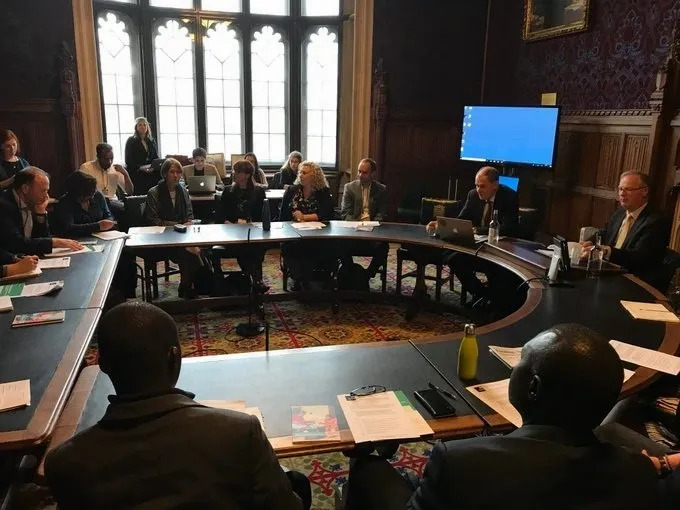How UK Action on NTDs is delivering Universal Health Coverage
Guest blog: Sophie Durrans, Malaria Consortium
On 10th September, Action for Global Health were delighted to co-host a parliamentary event, ‘Achieving Health for All: How UK action on NTDs is delivering Universal Health Coverage’, together with the APPG on Malaria and NTDs and the UK Coalition on NTDs. Ahead of the High Level Meeting on UHC on 23rd September, this provided a great opportunity for the NTD community to take stock on what has worked to date, and what needs to be done to ensure that NTDs and UHC are closely aligned.
The session kicked off with Nel Druce from DFID’s Health Services team giving an overview of the UK’s work towards Universal Health Coverage (UHC). She highlighted that to tackle diseases of poverty like NTDs, collaboration across sectors was critical. She noted the importance of low and middle-income countries integrating NTDs into a package of essential services, which will contribute towards achieving UHC.

Robert Yates, Head of Global Health Security at Chatham House, gave an overview of UHC in relation to malaria and NTDs. He argued that implementing UHC was the best way to tackle these diseases. He also stressed the importance of a predominately publicly financed healthcare system. The UK achieved this in 1948 with the NHS, but in recent years he felt that the UK has dropped the ball on UHC, which is undoubtedly a highly political process. He argued that the UK has a role to advise other countries that are seeking to achieve UHC. For example, the Kenyan government is looking at big UHC reforms and the UK can play a role to support this process.
Honing in on NTDs, Helen Hamilton (WaterAid) and Yael Velleman (Schistosomiasis Control Initiative) gave an overview of how four key elements of UHC – promotive, preventive, curative and palliative – are applicable to NTDs. They argued that intersectoral action can strengthen health systems, and that learning from best practices can help to move away from siloed approaches. This is demonstrated in a recent toolkit on WASH and health developed by the NTD NGO Network (NNN) and the WHO, which has already been adopted and implemented in Kenya.
Christian Rassi from Malaria Consortium reflected on the success that chemoprevention through mass drug administration (MDA) has had for NTDs. However, he argued that MDA can’t be a standalone intervention, and other complementary strategies must also be considered. He explained how integrating NTDs into primary healthcare can help to achieve UHC. Malaria Consortium implemented a small-scale study in Ethiopia which provided many lessons around the challenges of integrating NTDs into primary healthcare. He highlighted a number of recommendations targeted at policymakers, donors and development partners, which are outlined in an advocacy brief on the topic.
The presentations were followed by a useful discussion around the merits and challenges of integrating NTDs into health systems, with examples of how some countries have managed to integrate some diseases into primary healthcare for a period of time before it became separated out again into ‘vertical’ programmes. Participants also discussed the importance of a long-term view as critical to achieving both UHC and the elimination of NTDs. There was consensus that much more could be done to foster that longer term vision. Those focussed on different NTDs should work together as a community to strengthen the capacity of the health system, which in turns helps progress towards UHC.
